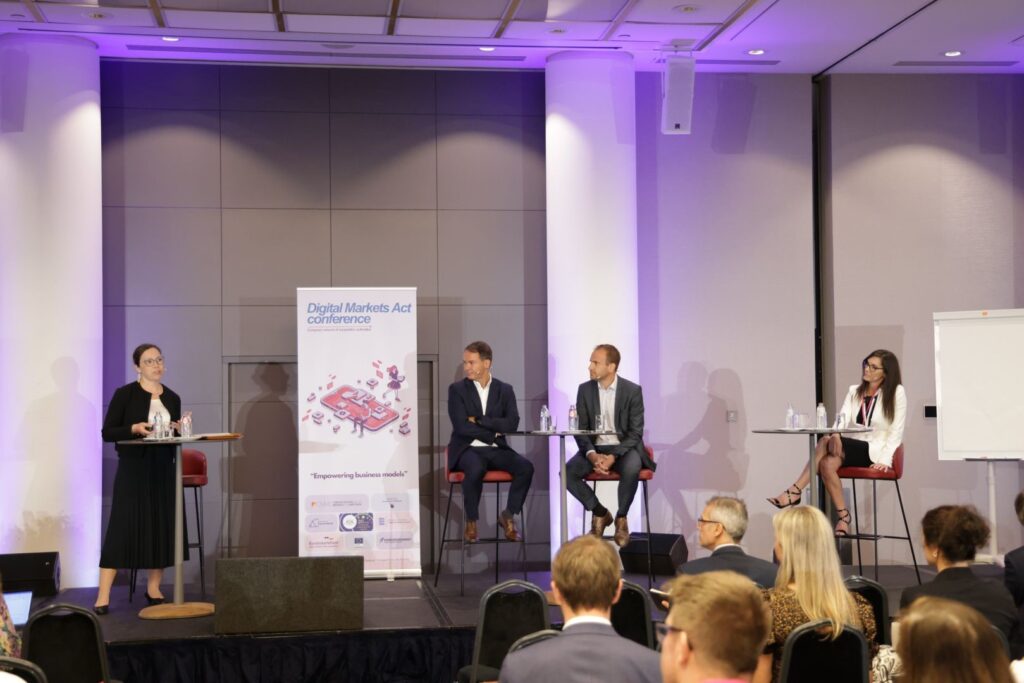On 24 June 2024, the European Competition Network (ECN) hosted a conference on the Digital Markets Act in Amsterdam. The conference was aimed at business users, allowing for a broad range of stakeholders to raise their voices. Vicky Robertson moderated a panel on app store-related provisions in the DMA, with panelists including Jérémie Jourdan (Schibsted Marketplaces), Jeanette Teckman (Match Group) and Paulo Trezentos (Aptoide). The panel was organised by the Austrian Federal Competition Authority and focused on the opportunities and implementation challenges that the DMA presents for app stores and apps.
Thanks to the advanced digitization in the Nordic countries, the distribution of news media through apps is greatly relevant to publishers there. Jérémie Jourdan, Head of Competition Policy and Public Affairs at Schibsted Marketplaces, explained how for this reason, Schibsted Media counts on multiple provisions in the DMA to reach users and establish more direct relationships with them, including relying on its own payment system. He also mentioned app store competition as an indirect means to solve several of the current issues. Jérémie pointed to an issue that was a current theme throughout the conference: business models. He expected a change in the gatekeepers’ business models to possibly run counter to the DMA’s ambition to lead to fair and contestable markets. Article 13 DMA on anti-circumvention to the rescue?
For Match Group’s dating apps (eg, Tinder, Hinge), distribution through app stores is central. Jeanette Teckman, Interim Chief Legal Officer at Match Group, emphasised how the payment processing system within app stores – and the hefty fees that come with them – represent a major issue in this respect. Jeanette highlighted what Match Group counts on from the DMA: FRAND fees and terms, the ability to actually use an own payment processing system, anti-steering and no parity clauses. Real compliance still is the major roadblock – including ‘scare messages’ that Apple imposes on app developers. This linked to the plenary discussion on consumer preferences that took place after the lunch break. As for the pricey core technology fee (CTF) now charged by Apple, she wondered what exactly this fee was being charged for.
In June 2024, and just in time for the DMA conference, Aptoide launched the first commercial alternative app store on iOS. Paulo Trezentos, CEO and Co-founder of Aptoide, highlighted that while this app store currently only contains nine games and is in a closed launch because of the CTF, it can be seen as a trial run for putting the implementation of the DMA obligations contained in Article 6(4) DMA to the test. With Aptoide already having filed a first complaint about Google’s self-preferencing behaviour in 2014, this is also the most problematic conduct Paulo identified for that gatekeeper. Further issues relate to the friction still present at install time and the lack of access to Google Play distribution.
Finally, Vicky asked the three panelists what advice they would give fellow digital tech challengers so as to make best use of the DMA. They all agreed that getting informed and getting involved – as well as smaller players joining forces – would go a long way to achieving gatekeeper compliance and thus opening up those business opportunities.
